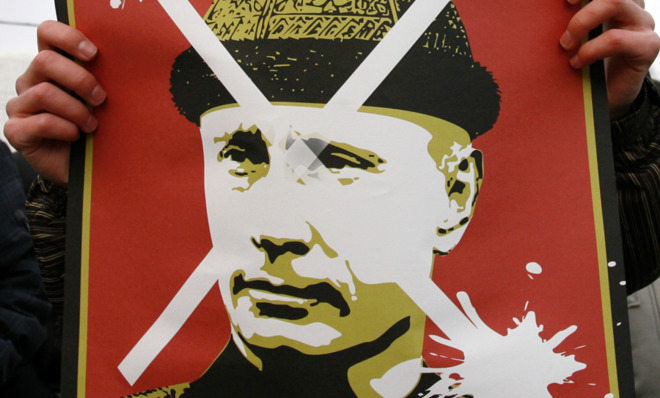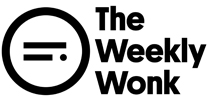How Putin and his ilk are redefining democracy — Big Brother-style
Democracies ain't what they used to be

A free daily email with the biggest news stories of the day – and the best features from TheWeek.com
You are now subscribed
Your newsletter sign-up was successful

It's been tough, recently, to discern the difference between dictatorship and democracy. Vladimir Putin's recent demonstration of political chutzpah, for example, raises again the question: How do autocrats like Putin get elected in a democracy? Answering this question requires acknowledging that democracies are not what they used to be.
During the past two centuries, democracy sounded like what they taught us in civics class: free and fair elections, competing political parties, respect for freedom of expression, division of political powers, and the rule of law. Not anymore. Just because countries hold elections, it doesn't follow that they magically enter the land of democratic Oz, having followed a yellow-brick road of perfect freedom.
Democracies come in all colors and shapes, with a lot of muddled gray on the palette. New democracies in Asia, Africa, Eastern Europe, and the Americas do not fit dreamy-eyed visions of boundless citizen power and restricted political power. In fact, most fall in a gray area between democracies and authoritarianism. Many democracies have dangerously verged into authoritarianism even though their leaders have been elected in free elections. Some have added modifiers to the lexicon: illiberal democracy, delegative democracy, and competitive and electoral authoritarianism. But are we talking about skim milk, slight variations on the essential thing, or frankenfoods, hazardous blends that are toxic for the public body? The situation of the press and digital media patently reflects the ambiguity of contemporary democracies. Just look at Russia, Turkey, and Venezuela. Democrats do not shutdown Twitter, pressure the press, or jail journalists.
The Week
Escape your echo chamber. Get the facts behind the news, plus analysis from multiple perspectives.

Sign up for The Week's Free Newsletters
From our morning news briefing to a weekly Good News Newsletter, get the best of The Week delivered directly to your inbox.
From our morning news briefing to a weekly Good News Newsletter, get the best of The Week delivered directly to your inbox.
The global playbook of democratically elected leaders with autocratic hearts is filled with carrot-and-stick tactics to ensure a sycophantic press and obedient publics. Dangle juicy government contracts to media oligarchs with far-flung business interests. Dole out official advertising like candy in Halloween. Shut off Internet switches when faced with mounting discontent. Stuff the pockets of corrupt journalists with assorted goodies. Discourage critical voices in the name of "national interest" and security concerns. Threaten to use libel laws and other antediluvian legal strategies to restrict speech. Pack courts with friendly judges. Order thugs on government payroll to go after inquisitive reporters.
The result is a situation that hardly resembles a democratic paradise. The choice for would-be journalists in this environment is to risk retributions if they scrutinize governments or save their skin and cozy up to governments. Media businesses tiptoe around sensitive subjects. Self-censored journalists populate newsrooms. Citizens fear government spooks patrolling social media. When the press is brow-beaten and journalists abandon all hope of monitoring power, democracy turns into a hollowed-out system.
Before we gain too much speed on our American high horse, let's remember that no contemporary democracy guarantees equal opportunities for public expression or complete press freedom. Money talks louder than most citizens especially during election times. News organizations subjected to cutbacks and constantly pressured to deliver audiences and advertising are not exactly the paragon of unbounded freedom. Governments try to keep things secret through creative hush-hush strategies. With its fair share of ethical scandals, the press is hardly the knight in shining armor coming to rescue democracies from despots and wrongdoing.
But what some governments in new democracies have done is not simply a shrewd strategy to gain advantages or keep sensitive matters out of public view. More than just stacking the cards in their favor, their use of insidious methods has undermined the quality of democracy. They have rigged the game by tying the hands of the press and undermining the chances that alternative voices are widely heard.
A free daily email with the biggest news stories of the day – and the best features from TheWeek.com
Stone-faced presidents deny accusations of authoritarianism even as they keep the press on a short leash and stifle dissent on digital platforms. They proudly claim that elections took place and that foreign observers deemed them fair. We govern with the consent of the governed, they say, citing — often legitimate — public polls. Democratic institutions are open for business: Legislators legislate and judges judge. No prior restraint exists. Most media organizations are privately owned and run. The opposition media criticize the government every day. Come and visit us — we are a democracy!
However, in democracy as in Hollywood, appearances are deceiving. Autocrats in democratic clothing have kept some basic democratic formalities while sharpening new and old tricks to manipulate the press and public dissent. Just because some democratic institutions exist it doesn't follow that the playing field of public expression has been leveled. What we see is true but it is not the whole reality.
Fortunately, such politics have met public outcry both nationally and globally. Yet many people look the other way, condone actions, or even justify putting the screws on the press or limiting public speech. Popular support for authoritarian measures is particularly troublesome in countries with weak democratic institutions and citizens too busy with everyday survival to pay attention to the fraying of basic freedoms.
What we need is for all concerned citizens, particularly, Western journalists, to point out the façade. Tell viewers and readers when a local publication has been compromised or self-censorship is widespread; don't report their news without such disclaimers. Show inconsistencies, open the curtains, call out hypocrisies, hold heads of state accountable. Don't settle for appearances and, instead, examine what democracies look like without make-up. Insisting on transparency, perhaps one of the remaining attributes in this unsettled media landscape, is still the only weapon we have left, and, luckily, the most effective.
Sign up to get The Weekly Wonk, New America's digital magazine, delivered to your inbox each Thursday here.
More from The Weekly Wonk...
-
 Tourangelle-style pork with prunes recipe
Tourangelle-style pork with prunes recipeThe Week Recommends This traditional, rustic dish is a French classic
-
 The Epstein files: glimpses of a deeply disturbing world
The Epstein files: glimpses of a deeply disturbing worldIn the Spotlight Trove of released documents paint a picture of depravity and privilege in which men hold the cards, and women are powerless or peripheral
-
 Jeff Bezos: cutting the legs off The Washington Post
Jeff Bezos: cutting the legs off The Washington PostIn the Spotlight A stalwart of American journalism is a shadow of itself after swingeing cuts by its billionaire owner
-
 The billionaires’ wealth tax: a catastrophe for California?
The billionaires’ wealth tax: a catastrophe for California?Talking Point Peter Thiel and Larry Page preparing to change state residency
-
 Bari Weiss’ ‘60 Minutes’ scandal is about more than one report
Bari Weiss’ ‘60 Minutes’ scandal is about more than one reportIN THE SPOTLIGHT By blocking an approved segment on a controversial prison holding US deportees in El Salvador, the editor-in-chief of CBS News has become the main story
-
 Has Zohran Mamdani shown the Democrats how to win again?
Has Zohran Mamdani shown the Democrats how to win again?Today’s Big Question New York City mayoral election touted as victory for left-wing populists but moderate centrist wins elsewhere present more complex path for Democratic Party
-
 Millions turn out for anti-Trump ‘No Kings’ rallies
Millions turn out for anti-Trump ‘No Kings’ ralliesSpeed Read An estimated 7 million people participated, 2 million more than at the first ‘No Kings’ protest in June
-
 Ghislaine Maxwell: angling for a Trump pardon
Ghislaine Maxwell: angling for a Trump pardonTalking Point Convicted sex trafficker's testimony could shed new light on president's links to Jeffrey Epstein
-
 The last words and final moments of 40 presidents
The last words and final moments of 40 presidentsThe Explainer Some are eloquent quotes worthy of the holders of the highest office in the nation, and others... aren't
-
 The JFK files: the truth at last?
The JFK files: the truth at last?In The Spotlight More than 64,000 previously classified documents relating the 1963 assassination of John F. Kennedy have been released by the Trump administration
-
 'Seriously, not literally': how should the world take Donald Trump?
'Seriously, not literally': how should the world take Donald Trump?Today's big question White House rhetoric and reality look likely to become increasingly blurred